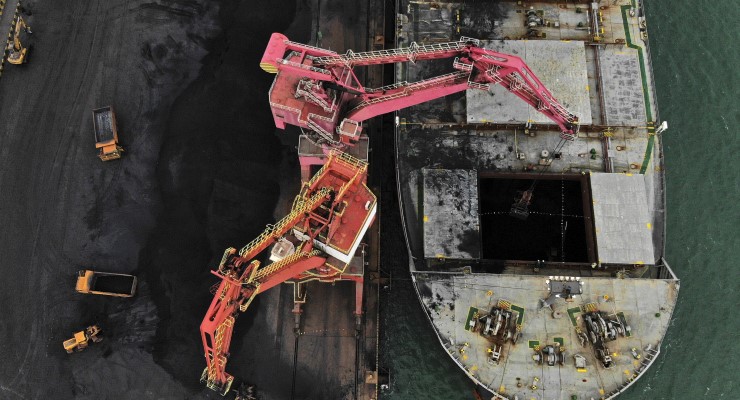
Yancoal Australia is one of Australia’s leading coal exporters, and being controlled by a state-owned enterprise in China you’d have thought it would have some found a way around — or been exempted from — bans on Australian coal imports that China has issued to punish it for seeking an independent explanation of the origin of COVID-19.
But nope. Not even being part of a major state-owned enterprise has helped (its parent, Yanzhou Coal Mining company, is one of China’s major miners, and its parent is Yankuang Group Company Limited is a corporate descendant from the state-owned restructured Yanzhou Mining Bureau).
Yankuang is the fourth-largest state-owned coal mining group in China. Wikipedia lists its key person as the chairman and “party secretary”.
But Yancoal’s December quarter and half-year production and sales report, which was slipped out on Tuesday night well after the Wednesday newspapers had closed and business news agencies were being serviced from offshore, reveals it could not escape the bans in China. Not that Yancoal called them bans.
The company’s management might be Western (mostly Australian) but the report shows it knows how to observe the linguistic niceties to keep head office happy and in their jobs, and the party hacks in Beijing onside — judging by the commentary on the current state of the coal market (bold added).
In China, the arbitrage between domestic and import prices remain above US$20/t, notionally supporting the demand for imported coal, and import protocols of China continue to influence regional coal markets. In response to market conditions Yancoal continually optimised its product to maximise sales and has further diversified its customer base with sales made into India, Pakistan and South America during the second half of 2020 …
During 2021, we expect to see a recovery of global economic conditions, especially those caused by the economic slowdown due to COVID-19 disruptions, and the associated demand for electricity generation. However, the influence of weather on both supply and demand, along with regional trade settings, will likely contribute to uncertainty regarding the direction of coal prices during the first half of 2021.
So bans become “import protocols” and “regional trade settings”. Discussing the bans would be a bit too direct and honest for Beijing so the language is tortured to hide the obvious.
Contrast Yancoal’s strangled syntax with the more direct language in the recent quarterly and half year report from Whitehaven Coal, a fellow NSW-based coal exporter.
Chinese import restrictions for Australian sourced coal were more widely reported as the December quarter drew to a close … In addition, late in 2020 China lifted its total import quota in response to strong domestic demand and an extremely cold winter. China’s restrictions have altered seaborne coal trade flows … Prices for Australian origin metallurgical coal remain weak in the absence of Chinese buyers.
Ah, the joys of freedom of speech.








Praise the Lord! An article in Crikey not about the USA.
If you’re praising the lord then the article should be about the overly religious US.